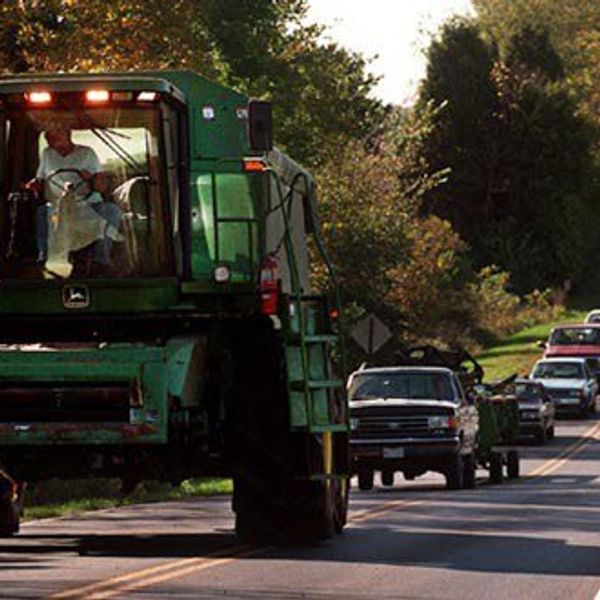A little over a year ago, I was dead set on skipping out on college and living my life as an organic farmer. I dreamed of early mornings, watching the sunrise as I milked my cows and tended to my crops. It’d be a carefree, easy life. I’d eat what I grow and make a living selling my produce at local markets, promoting sustainability and organic farming methods. It was the dream.
Then I took a year off after high school and WWOOFed for three months. WWOOFing, for those of you who don’t know, stands for “World Wide Opportunities on Organic Farms.” It’s a non-profit organization funded primarily from the membership of travelers, who pay a small fee in whatever country they want to travel to to work on locals’ farms in exchange for a place to stay and food. I chose to WWOOF in Ireland, where I had romanticized views of rolling green hills, fluffy white sheep, and quaint pubs that played nothing but traditional Irish music. I jetted off for the Emerald Isle, excited to preview what the rest of my life would look like.
The farming life, I soon learned, was like biting into a delicious-looking Safeway cake and getting a mouthful of plastic-tasting frosting and disappointment. The family I stayed with was better than I could have hoped more – welcoming, comforting, and easy to get along with. And their farm was the ideal place for a WWOOFer. They gave me plenty of time off on the weekends (something, I must note, that farmers never get), and took the time to teach me everything I needed to know to be a real farmhand. It was, I’m ashamed to admit, the farming itself that made me rethink my dreams. My naivety and I were slapped hard in the face by the reality of the work. I had to wake up every morning by 7 a.m. to water the crops before the sun was bright to evaporate the water, and before the animals got too hungry. Of course, waking up early doesn’t seem like the worst thing in the world. We’ve all had to wake up early almost every morning for school. But, on those days when we were sick or just too tired to get out of bed, we didn’t have to. Our livelihood didn’t depend on whether or not we were able to get our ass out of bed on time. For farmers, that’s not the case. They don’t get to think, Well, I’m just too tired today. Sick or not, tired or not, they’re out there working.
Next, I made my rounds feeding all the livestock, cleaning their coops and pens (absolutely revolting), and wondering why I chose to do this instead of living on an island sipping Mai Tais for a couple of months. Besides an hour break for lunch, I never stopped working. Life on the farm never stopped. The animals didn’t stop needing water when I was tired, and the weeds didn’t stop growing when my knees ached from crouching on the ground. I was well-aware of the fact that I could easily high-tail it out of there and stay in the nearest city (for my personal pride, something I did not do). I didn’t have to be doing this. But the farmers do. They don’t have a choice of keeping their farm alive or taking the day off to go shopping. That option doesn’t exist. Their reality is a reality most of us will never face. I realized very quickly why this “carefree, easy” dream was just that – a dream. There is nothing easy or carefree about farming. To have thought otherwise, I now understand, was an insult to farmers.
So the next time you walk into a supermarket and are presented with an array of produce, remember that it came from hard-working individuals. Don’t take this for granted, and remind yourself how lucky we are that there are people out there willing to do this work, because it’s certainly not for the light-spirited.





















